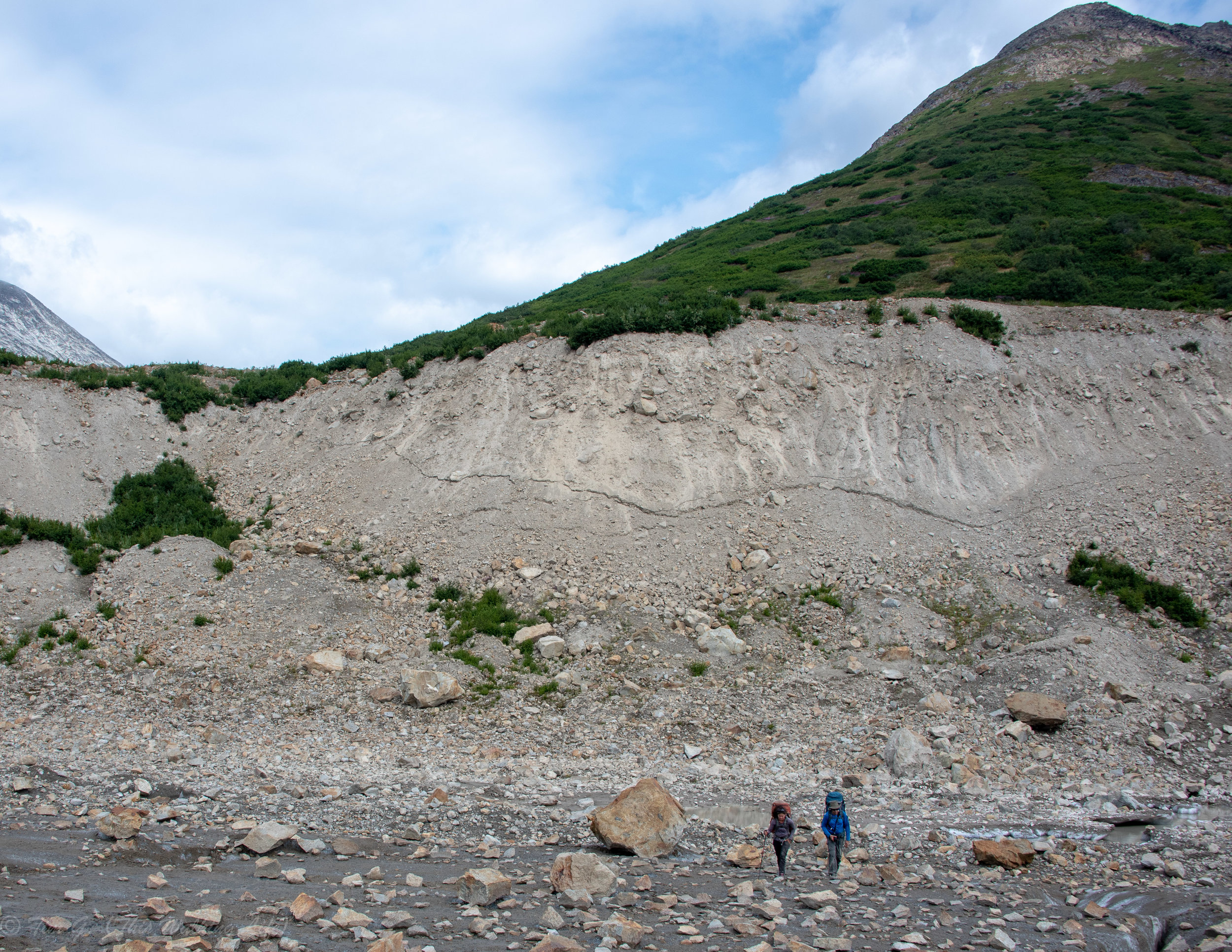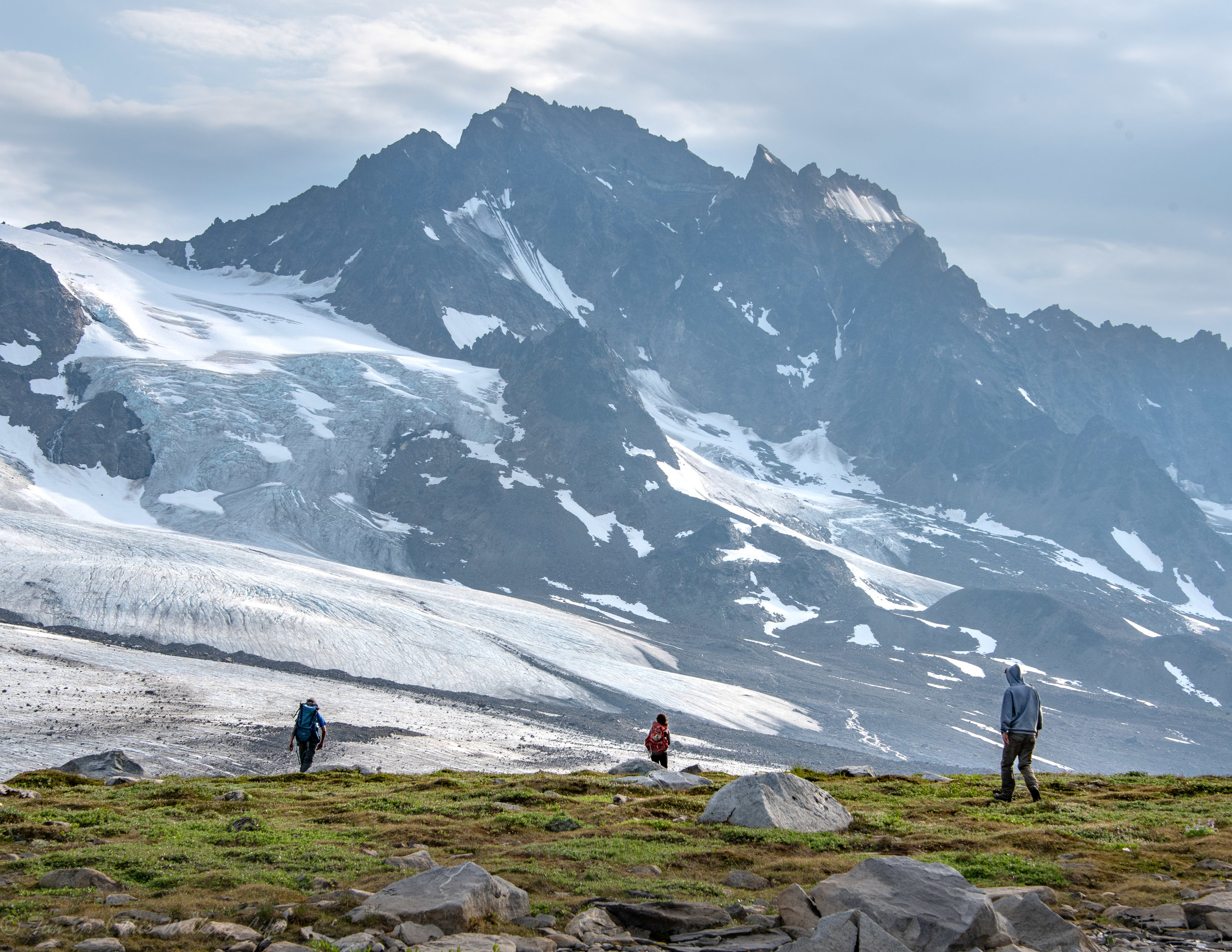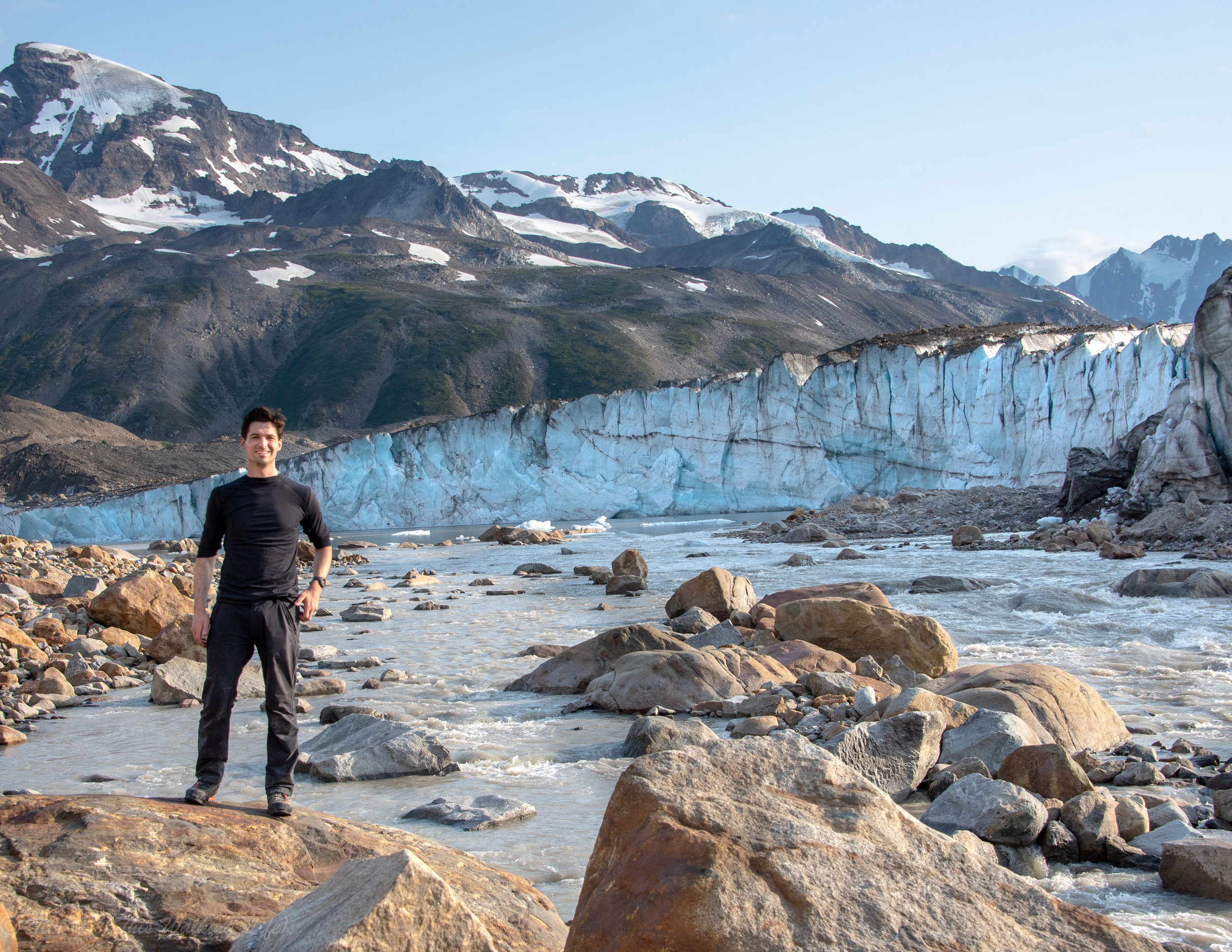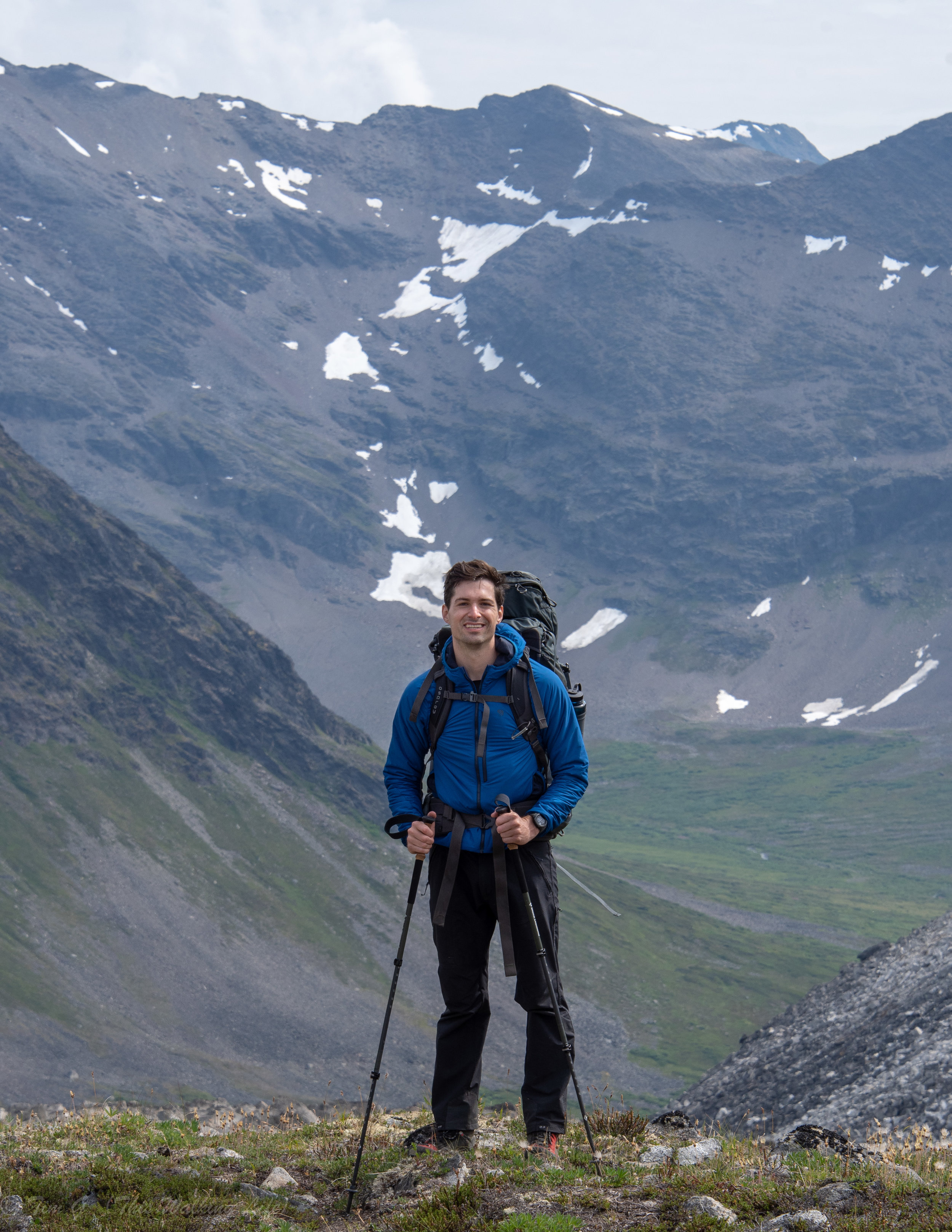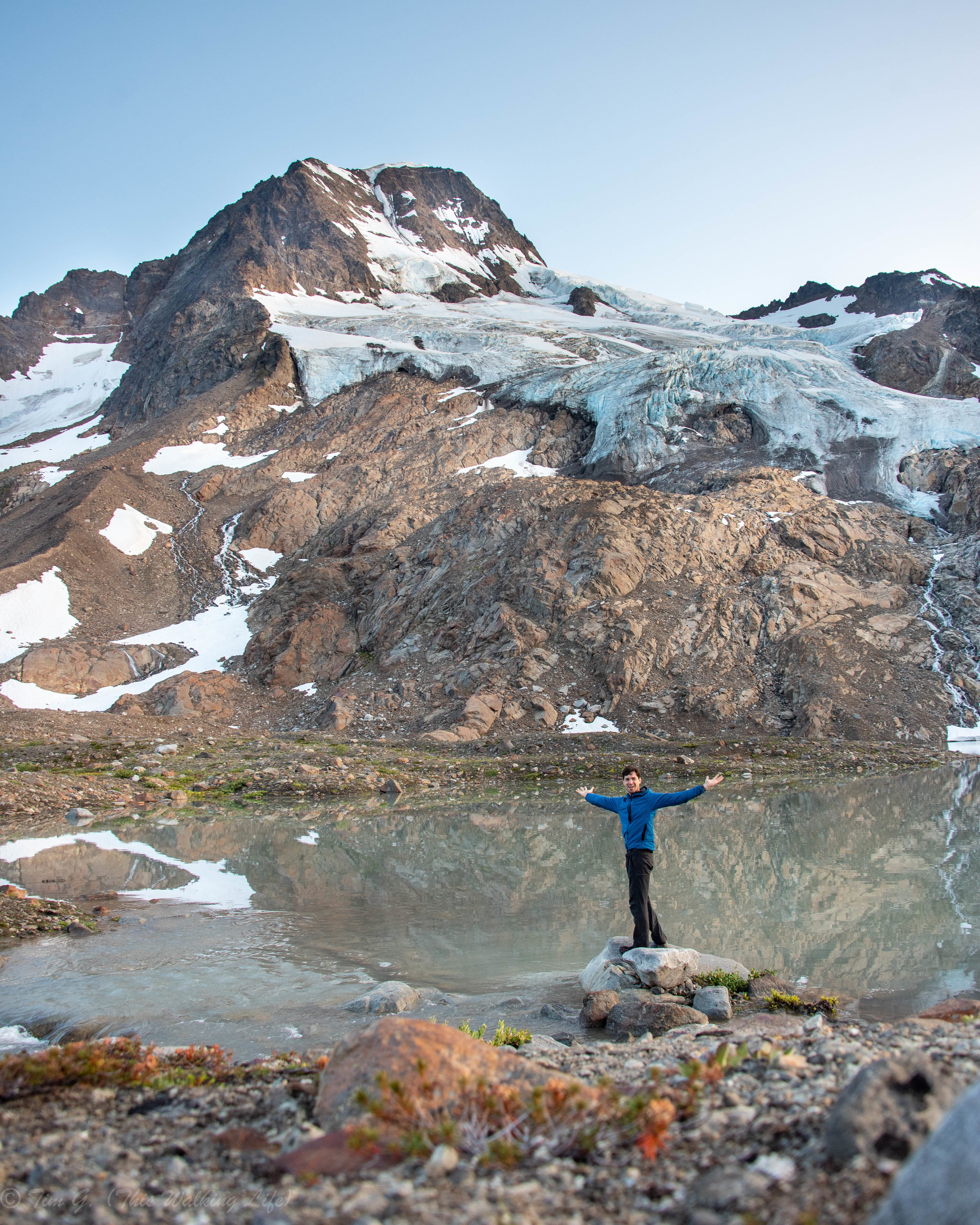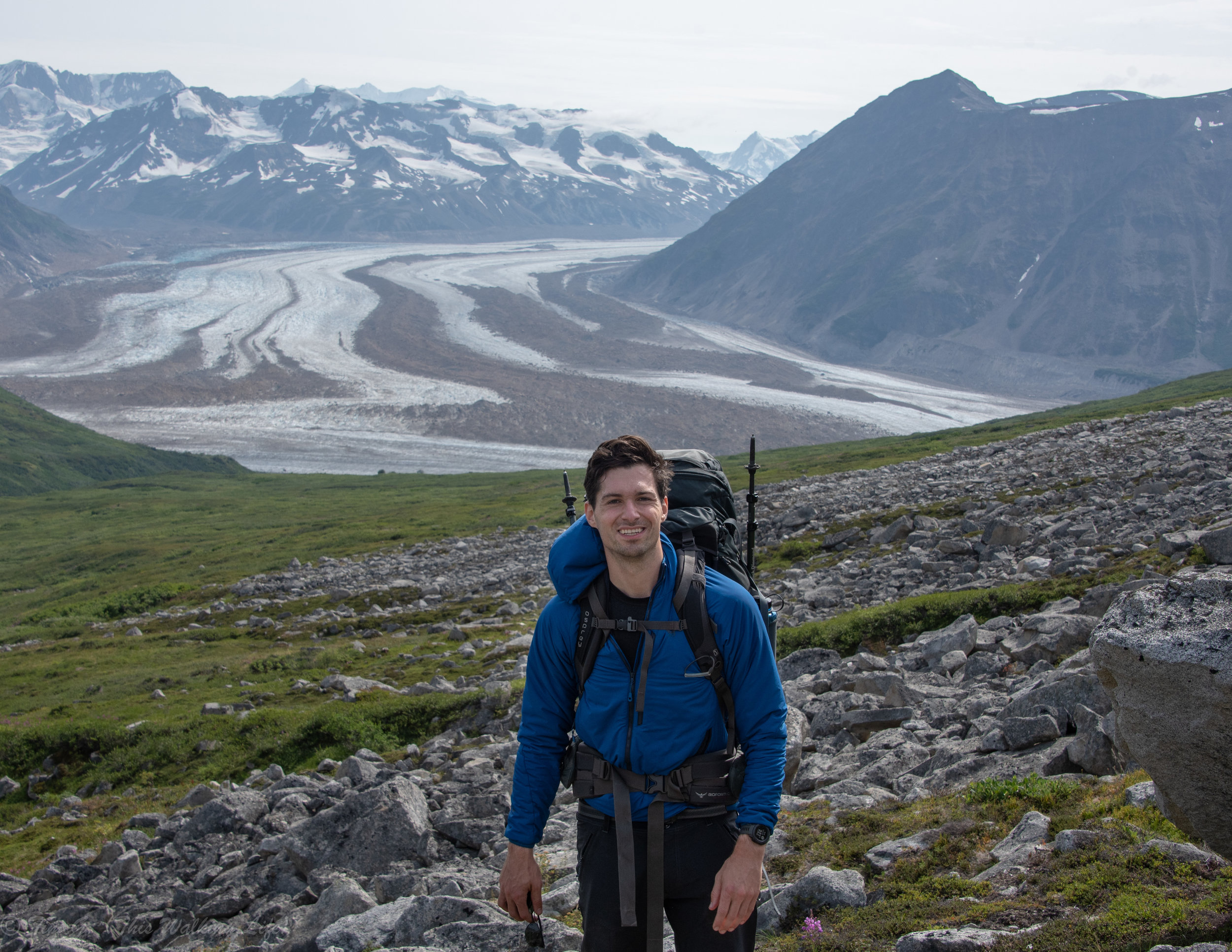Midway into the seven-hour drive from Anchorage to McCarthy (the jumping off point for the bush-plane that would land us into the Wrangells backcountry), my guide turned to me and asked, “Wait. You’ve never backpacked in the wilderness before?”
I gulped. “I mean… I’ve backpacked across Spain for 30 days, but we stayed in hostels.” She didn’t respond, so I went on trying to justify myself “I mean, I hike a lot on hard trails… and I run a lot.” More silence, “…and I’ve car camped!”
She thought for a bit. “In ten years, I think you may be only the second person I’ve ever guided who hasn’t backpacked before.”
My stomach dropped. We weren’t even in the wilderness yet. Was it too late to turn back?
But I went on. Surely it couldn’t be that hard, I told myself? I’m young, fit, and have a history of pushing myself through intense pain. All true, but after the first day I wondered if I had made a mistake. That day, after the plane left us, we trekked 9 hours 2500 vertical feet up one mountain, down a scree field on the other side, and then bushwhacked through a long section thick willows in the valley to a clearing near a river. When my guide said, “let’s set up camp here.” I dropped my pack, and literally collapsed in exhaustion. While the others set up their tents, I lay on my back in the grass not moving for 10 minutes as my face and arms were devoured by swarms (literally) of mosquitoes. By day four, I had dark bruises over both of my hips and shoulders from my pack, and blisters that had popped on both of my heels.
While the physical strain of the trip was intense, I soon found that it paled in comparison to the emotional and mental challenges.
The morning of day 2 I scrawled in my journal, “I’m in deep here… growing sense of dread.” Yet, I knew there was no turning back. We’d been dropped off by a plane. I couldn’t just walk back to the car and wait it out a coffeeshop. I had to go on. But, given how tired I was after day 1, would I be able to make the remaining 7 days? I didn’t know.
This state of mind was not helpful. In fact, it helped breed other fears. For instance, once I realized there was no turning back, I became consumed thinking about what would happen if I fell. Either, if it was really bad, I’d likely die before a rescue could come. Or if if it wasn’t life threatening, then I would have to endure the rest of the walk in significant additional pain.
Given this, each step took on an extra level of gravity and danger. This was especially acute as many of the paths we cut down mountains were down steep scree fields that regularly partly gave away with each step you took.
This feeling of dread was compounded by feelings of intense shame and guilt. I am used to keeping up with other people through sheer willpower, but after just one hour in the backcountry, I discovered that no matter how hard I worked, I couldn’t move as fast as my guide or my two traveling companions. Was I fool for signing up for a trip? Was my lack of fitness making everyone else have a bad time? Why was I so weak?
Then at night, after everyone else had gone to sleep, no matter how tired I was, I could barely rest I was so afraid a bear might attack our camp. Not only did I have trouble sleeping, but for the first few nights, I woke up almost once an hour.
And yet, despite these challenges. By the end, as we were waiting the plane to pick us up, I didn’t want to leave. I wished that instead of picking us up, Bill (our pilot) would just airdrop more food so we could go on exploring the backcountry another 8 days.
Why this dramatic transformation? What had changed?
Midway through the trip my guide said to me that she believes consciousness is like navigating a boat on a lake. Often the surface is turbulent. And when waves are crashing it is all we can do to stay afloat and above the waves. But another world exists below the surface too. It is there always, but when we are consumed fighting the storms we have no capacity to see it.
In the wilderness, physically exhausted, cut off from so many stimuli that fill my life, I found that the lake calmed, and things that had long been at the bottom of the lake began to surface. I experienced this first in my dreams, which were vivid and filled with images and people from years before. But slowly, I found it in my waking awareness too. Specifically, rather than reacting immediately to my negative feelings, I began to notice them, and then choose whether (and how) to act.
In time, five truths emerged for me from the bottom of the lake, which helped me change my actions, and in turn transform my experience.
First, my mental and physical worlds are inextricable tied. When I let my mind be consumed with fear or shame (as I did the first few days), it took a heavy physical toll. Conversely, when I cultivated a healthy mental life, I felt more vigor. On the hike, this meant that starting midway through the trip each night (no matter how long we had hiked) I set aside time to journal and do a yoga self-practice before I went to sleep.
Second, even when I have a guide, I feel more life and excitement when I can find ways to learn and experiment too. During the first days of the trip I was so scared of falling on the uneven terrain I literally haunted my poor guide’s steps so closely I stepped on her heels more than once. After realizing this through my journaling, I choose to walk slightly behind and to the side of her. Though I was of course still following her macro directions, I wanted to find my own footing through the brush and across the rocks. At first this slowed me down, but in time I found my own rhythm that was better suited to my stride. Moreover, when I had to find my own step, I looked up more as I needed to keep not only my immediate next step but also my next 100 steps in mind as well. This shift opened up so much for me. Not only did I appreciate more of the natural beauty of our hike (because I was looking up), it also made me feel more engaged in the process of creating the experience.
Third, when I’m afraid, sometimes I need to lean in. For example, when crossing a rock field, if I stood upright and stopped with each step to find the perfect footing, I expended an enormous amount of effort and moved very slowly. In contrast, when I flowed each step immediately into the next, not only did my momentum increase my speed, but I also felt more balanced and spent significantly less energy. Let gravity help!
Fourth, sometimes you can’t lean into (or outrun) your fears; letting them control you doesn’t help – learn to let them go! For instance, while I couldn’t sleep the first two nights because every rustle of wind filled me with dread of a bear attack, by the third night I realized that even if a bear was in camp there was nothing I could do. I should make sure I left all my food far away in a bar can, and I should keep my bear spray close, but beyond that, my fear was not helpful. So, I started sleeping with ear plugs. If a bear attacked or someone screamed, I’d still hear it, but with earplugs in, I couldn’t hear the smaller sounds that my brain was mistakenly coding as dangerous. This worked beautifully, and I slept well the remainder of the trip. This was equally true of my “shame”. Obsessing on how slow I was relative to the others didn’t help me or them. In fact, it just slowed me down further. I needed to let it go so that I could save my energy for things I actually had control over.
Fifth, don’t seek external stimuli to fight discomfort. Back in real life, it’s been hard for me to avoid reaching out for external stimuli (like looking at my phone, turning on music to fill silence, or switching on a movie) when I feel uncomfortable. Being away from those temptations so long helped me see how truly addicted I’ve become to these “hits”. And so, it’s not surprising that being unplugged was hard the first few days. My mind seemed to thrash about, and I obsessed on negative feelings (as I wrote about above). But, as the experience shifted into four, five, six, seven days, with each day I found my internal world calmed more deeply. I realized what had seemed like stillness was not. And the longer I was cut off from everything except what was in front of me, the more content I felt with what I had. Yet, even on the trip there were temptations to fill silence – by saying things to others just to make noise – here too, I found that if I held my tongue, and only spoke when I had something important to say, then I created more space for my mind to find contentment in the moment.
Taken together, these realizations transformed my attitude, energy, and experience. As I wrote above, I did not want to leave when the plane arrived on the final day. And so, although it was the hardest thing I’ve ever done, it was also one of the most beautiful and enlightening.
I can’t wait to get into the backcountry again. But, even back in the society now, I’m finding that the backcountry has come with me in its own way too. For more than anything, I am now aware of what stillness looks truly feels likes, and I realize that it’s always been within my control to calm the waves in my mind.





